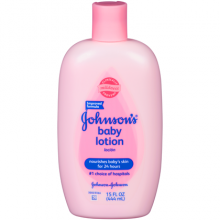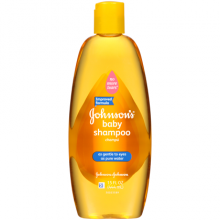Eczema, or atopic dermatitis, is a chronic inflammatory condition that affects up to 20 percent of all babies. Eczema,is frequently seen in babies with a family history of eczema, asthma or allergic rhinitis. It is usually experienced as periods of flare-ups followed by periods of no or few symptoms. In babies, it often appears as a red, irritated, itchy rash on the face and scalp. In some cases, certain foods (such as cow's milk, eggs, wheat or oranges) may provoke a flare-up.
Eczema, or atopic dermatitis, is frequently seen in babies with a family history of eczema, asthma or allergic rhinitis. It is usually experienced as periods of flare-ups followed by periods of no or few symptoms. In babies, it often appears as a red, irritated, itchy rash on the face and scalp. In some cases, certain foods (such as cow's milk, eggs, wheat or oranges) may provoke a flare-up.
In babies, eczema often appears as a rash on the hands, face, neck, inside of the elbows and back of the knees, but may spread to other areas. Eczema rashes are associated with intense itching (pruritus). If the condition continues or is severe, you should definitely talk to your baby’s healthcare provider to understand if the condition is clinical eczema (atopic dermatitis) or dry skin, and to learn the best way to treat and manage. Here are some tips for dealing with eczema, as well as extremely dry or sensitive skin:
- Avoid the things you think may cause itching, such as dust, grass, weeds, wool clothing and certain soaps, detergents, fabric softeners and perfumes. It may help to keep a diary to determine the cause
- Give your baby short baths — no more than 5 to 10 minutes — in water that is warm, not hot
- Use mild skin cleansers or shampoos specially made for babies with sensitive skin Be extra careful on areas often exposed to the environment
- Dry the skin after a bath by patting with a soft towel, and then immediately apply moisturizer. Do not rub the skin
- Moisturize frequently throughout the day, especially after bathing
- Use an emollient cream, smoothing it into the skin in a downward motion
Although eczema can be an irritating condition, especially during periods of flare-ups, by following these tips, you can help to make your baby more comfortable.
More on Eczema
Visit BabyCenter® to learn even more about how to recognize and treat eczema, as well as everyday routines that can help make your baby feel more comfortable.
Moms around the world trust JOHNSON’S® to care for their babies
We are committed to working with moms, healthcare experts and scientists to ensure our products continue achieving the highest standards in safety, quality and care.
For Every Little Wonder™
Life with a baby is more than just giggles. You’ll find yourself rediscovering the world, changing your goals and growing your capacity for love. Join us as we celebrate every wondrous moment along the magical journey of parenthood.





